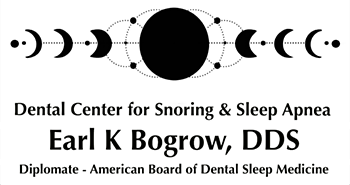How Sleep Deprivation Damages Your Health

Ever felt like a zombie because of lack of sleep? Even if you miss just one night of sleep, you can feel drowsy and sluggish the next day. You probably won’t have a lot of energy and you may be irritable. It is estimated that about one-third of the adults in the US suffer from sleep deprivation. Lack of sleep affects how you think and feel. Short-term impacts are often very noticeable. But if you go for longer periods of time without enough sleep, you increase the risks of having long-term physical and mental problems. It’s important to get adequate sleep to avoid the problems getting inadequate sleep can cause.
Types of Sleep Deprivation
Sleep deprivation has three categories. These are based on a person’s specific circumstances.
· Acute Sleep Deprivation happens over a short time period. Usually, it only lasts a few days at the most. For three or four days, sleep is significantly reduced.
· Chronic Sleep Deprivation is also known as “insufficient sleep syndrome.” The American Academy of Sleep Medicine defines this type of sleep deprivation as a lack of sleep that continues for three or more months or longer.
· Chronic Sleep Deficiency or insufficient sleep is ongoing sleep deprivation. This can be a total lack of sleep or poor sleep that occurs from disruptions or sleep fragmentation.
Do You Have Symptoms of Sleep Deprivation?
The main signs of sleep deprivation are being extremely sleepy during daytime hours, inability to concentrate, mood changes, and slower thinking. If you experience excessive sleepiness during the day you may have difficulty staying away. Sometimes, you may experience microsleeps where you doze off if you are still for just a few seconds. When you don’t get an adequate amount of sleep, it negatively affects you during the day. Some of the symptoms you may not be getting good quality or sufficient amounts of sleep include:
· Snoring during sleep
· Gasping during sleep, or waking up struggling to breathe
· Stop breathing during sleep
· Slowed responses during the day when you are awake
· Poorer than normal memory capabilities
· Risky or poor decision-making
· Reduced ability to pay attention
· Fatigue and lack of energy even after a full night’s sleep
· Extreme mood changes
Your specific symptoms may depend on how serious your sleep deprivation is and whether it is chronic or acute. Genetics may play a role in the severity of symptoms. Using stimulants like caffeine may mask some of the symptoms.
What Types of Health-Related Problems are Tied to Sleep Deprivation?
The effects of sleep deprivation as well as sleep deficiency can be far-reaching and serious. Even acute sleep deprivation increases the risk of accidents and unintentional errors. Drowsy driving, slow reaction times, and microsleeps can become life-threatening problems. When you are deprived of adequate sleep you may struggle more to perform at work or school, and you may have mood changes that affect your personal relationships.
Chronic sleep deprivation can be a contributor to many different health problems since sleep plays a crucial role in keeping all the body systems running properly. Some of the risks include:
· Cardiovascular Disease – Sleep deficiency can increase your risk of cardiovascular problems like coronary heart disease, high blood pressure, stroke, or heart attack.
· Obesity – Researchers have discovered that when people don’t get enough sleep they tend to consume more calories and carbs which can lead to obesity. Obstructive sleep apnea (OSA) alters glucose metabolism, promotes insulin resistance, and is associated with the development of type 2 diabetes.
· Diabetes – Obstructive sleep apnea (OSA) alters glucose metabolism, promotes insulin resistance, and is associated with development of type 2 diabetes.
· Mental Health Issues – Sleep and mental health are closely related. Inadequate sleep is associated with conditions like bipolar disorder, anxiety, and depression.
· Hormonal Abnormalities – Sleep aids the body in producing and regulating different hormone levels. Sleep deprivation potentially increases the susceptibility to hormonal problems.
When to Call Dr. Bogrow
If you have been diagnosed with sleep apnea by a sleep physician and would like to pursue an alternative to CPAP, such as oral appliance therapy, or a dental mouthpiece, to treat your sleep deprivation caused by sleep apnea, or if you have any of the above-mentioned symptoms, take our online Sleep Assessment and receive your results from Dr. Bogrow of Earl K. Bogrow and Associates, your Michigan Sleep Apnea Center. Dr. Bogrow is one of the leading dentists who treat sleep apnea and is Board Certified in Michigan to treat sleep apnea. He practices in the Detroit metropolitan area. He will be able to evaluate your situation and determine if you are suffering from sleep deprivation and make the appropriate recommendations. If you are, Dr. Bogrow can provide you with a dental solution to a medical problem, covered by insurance, to ensure you get better and longer sleep.







